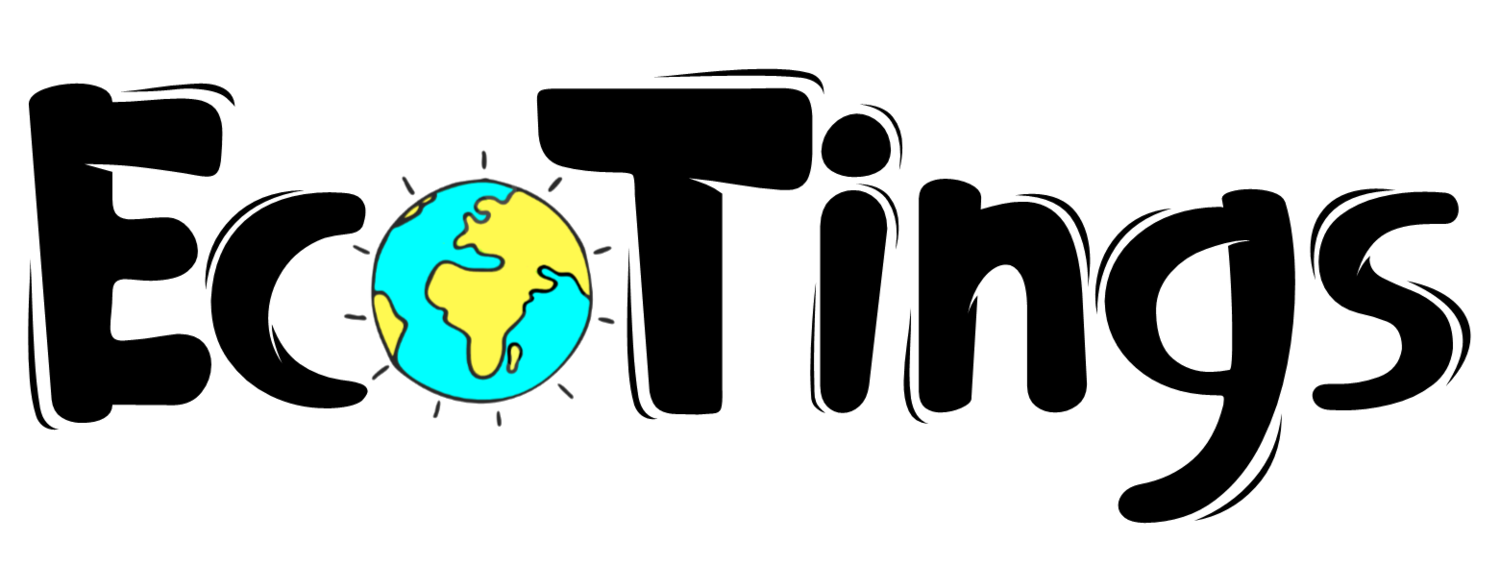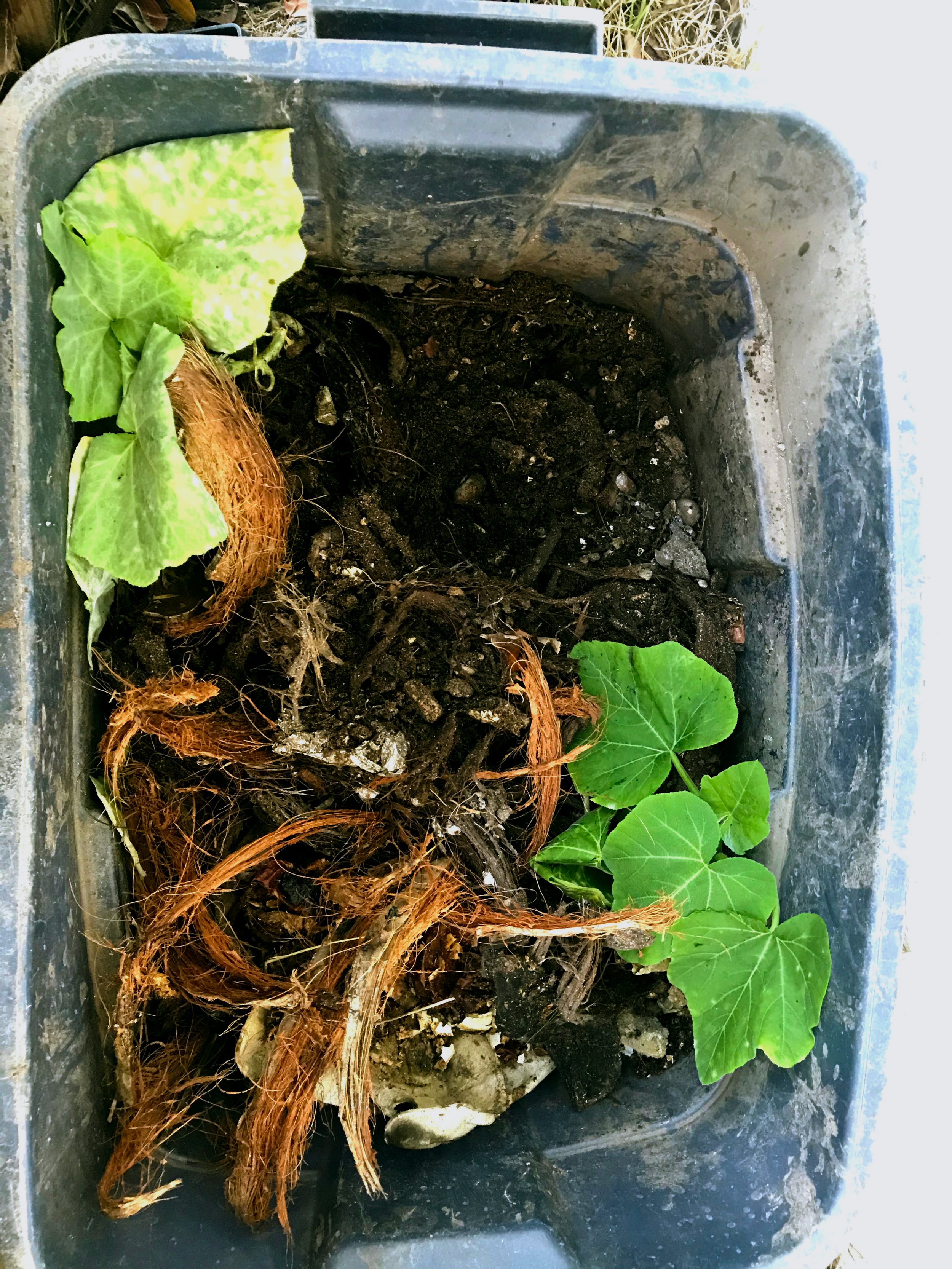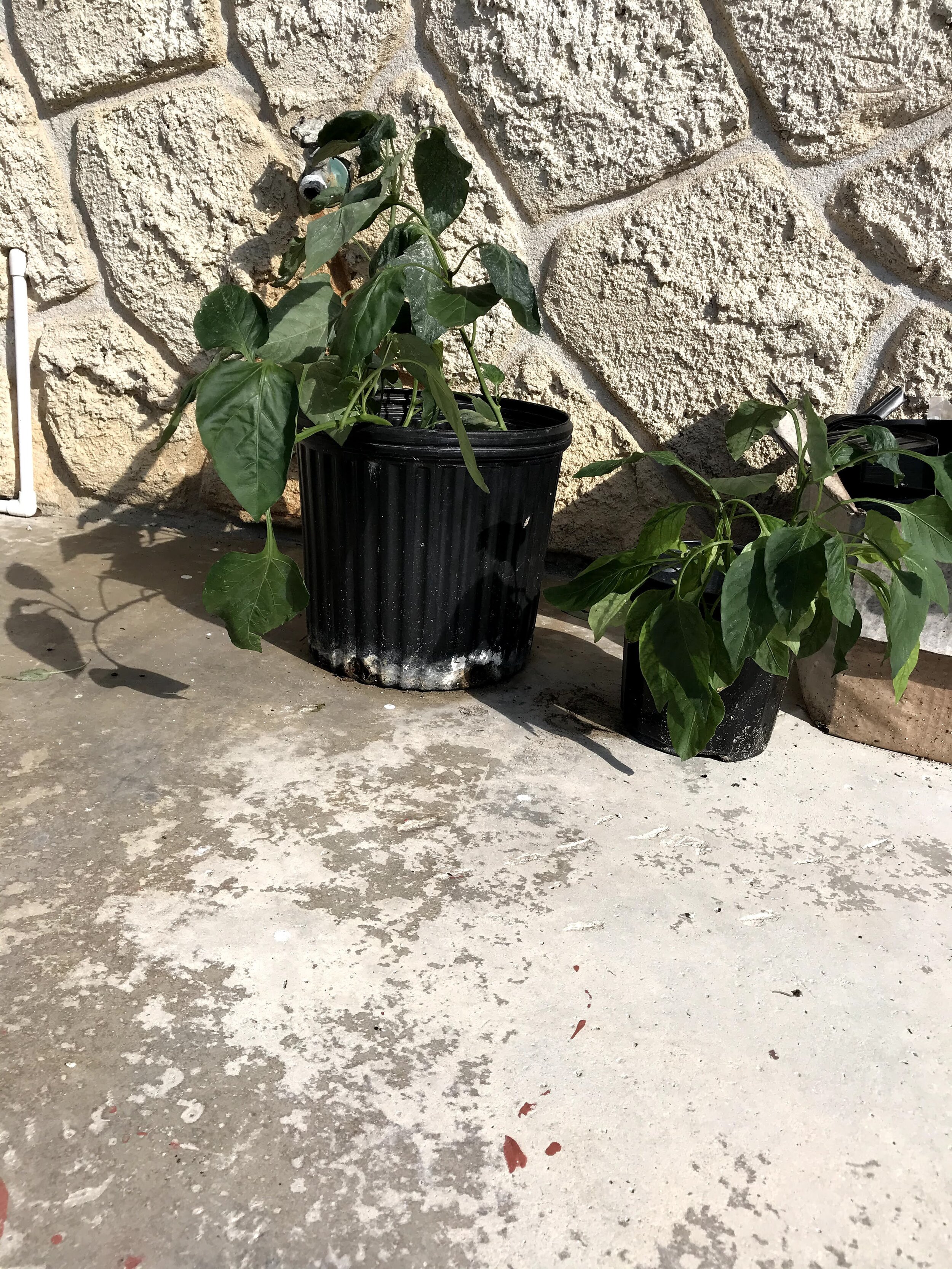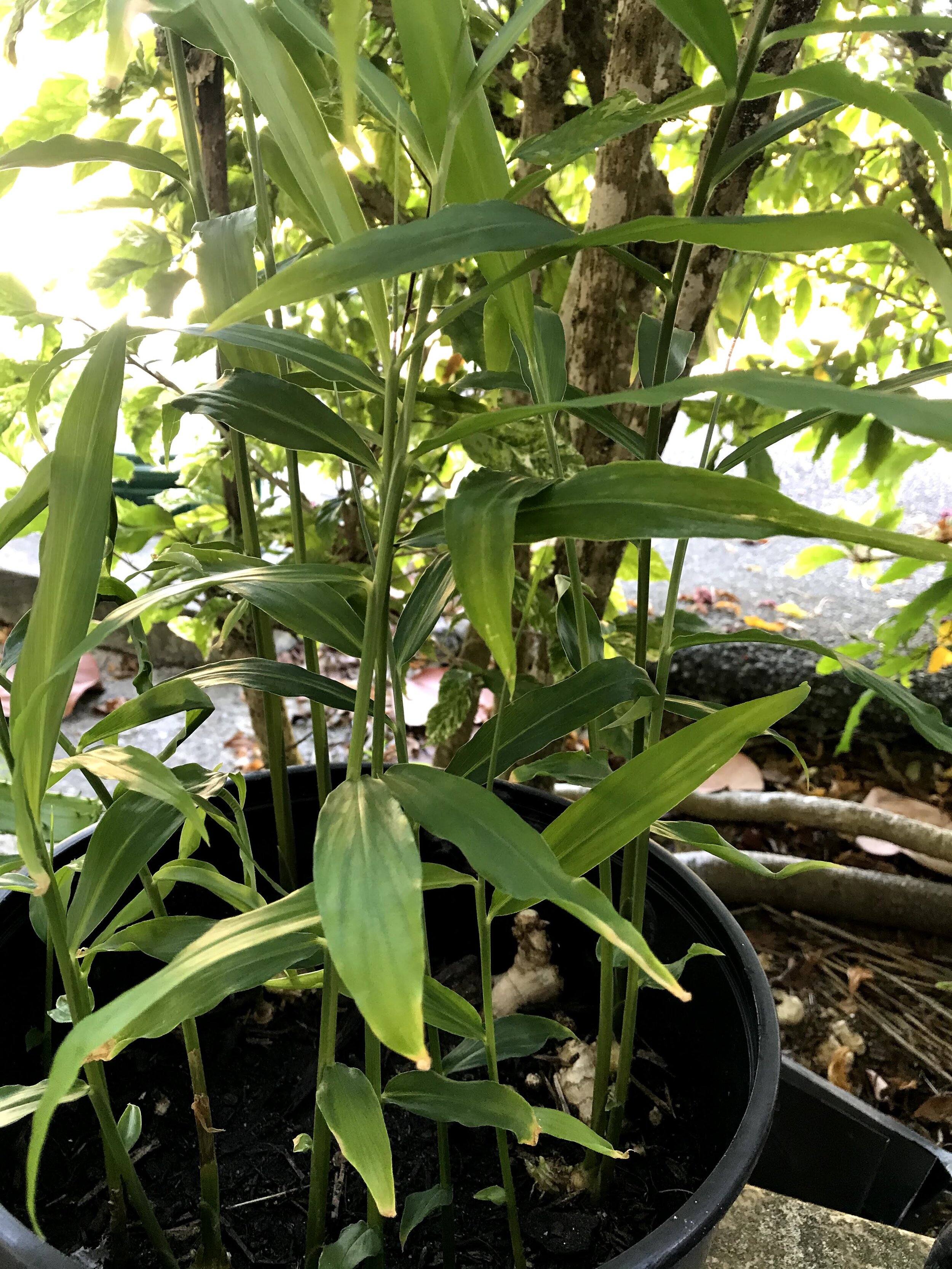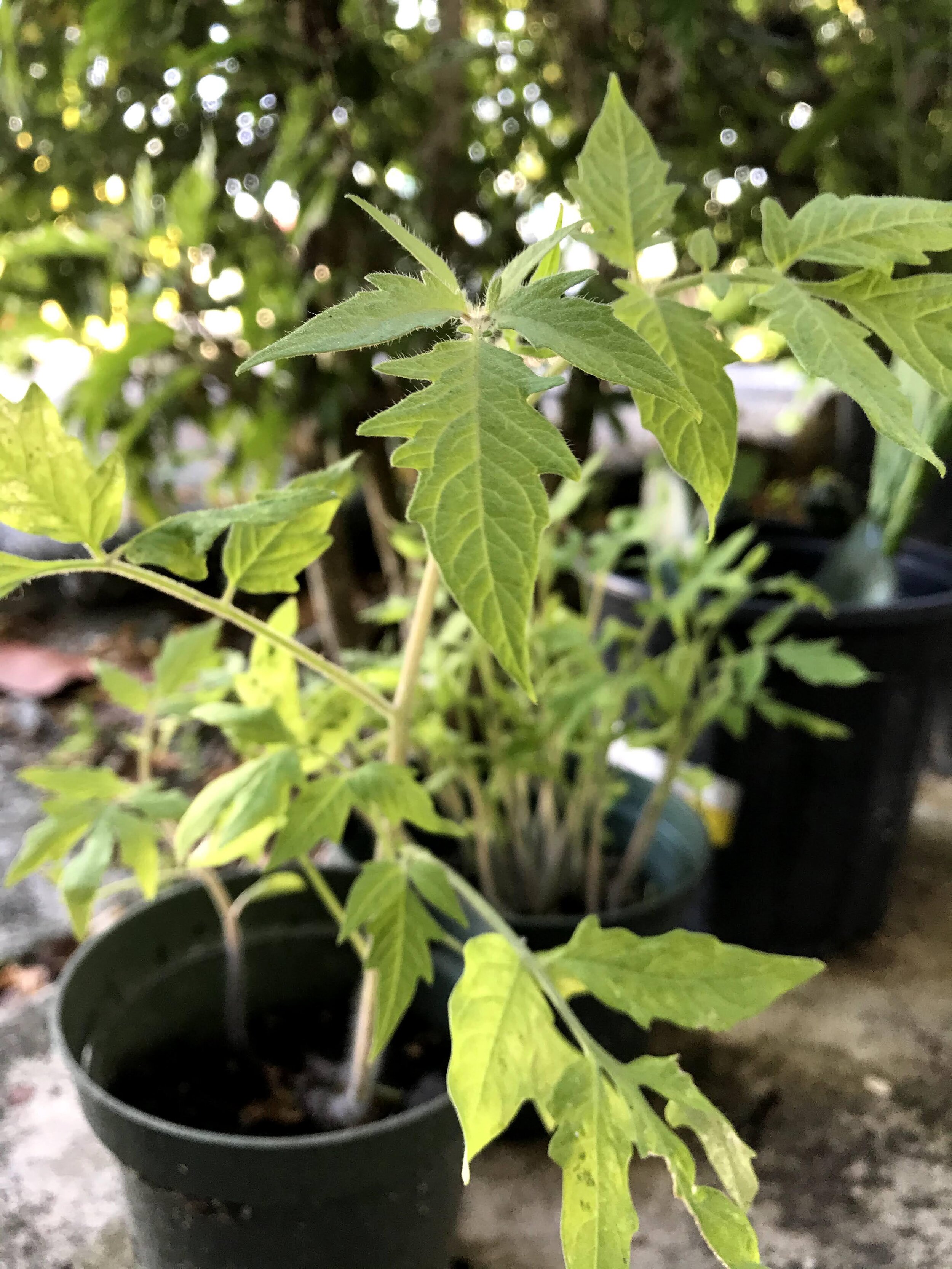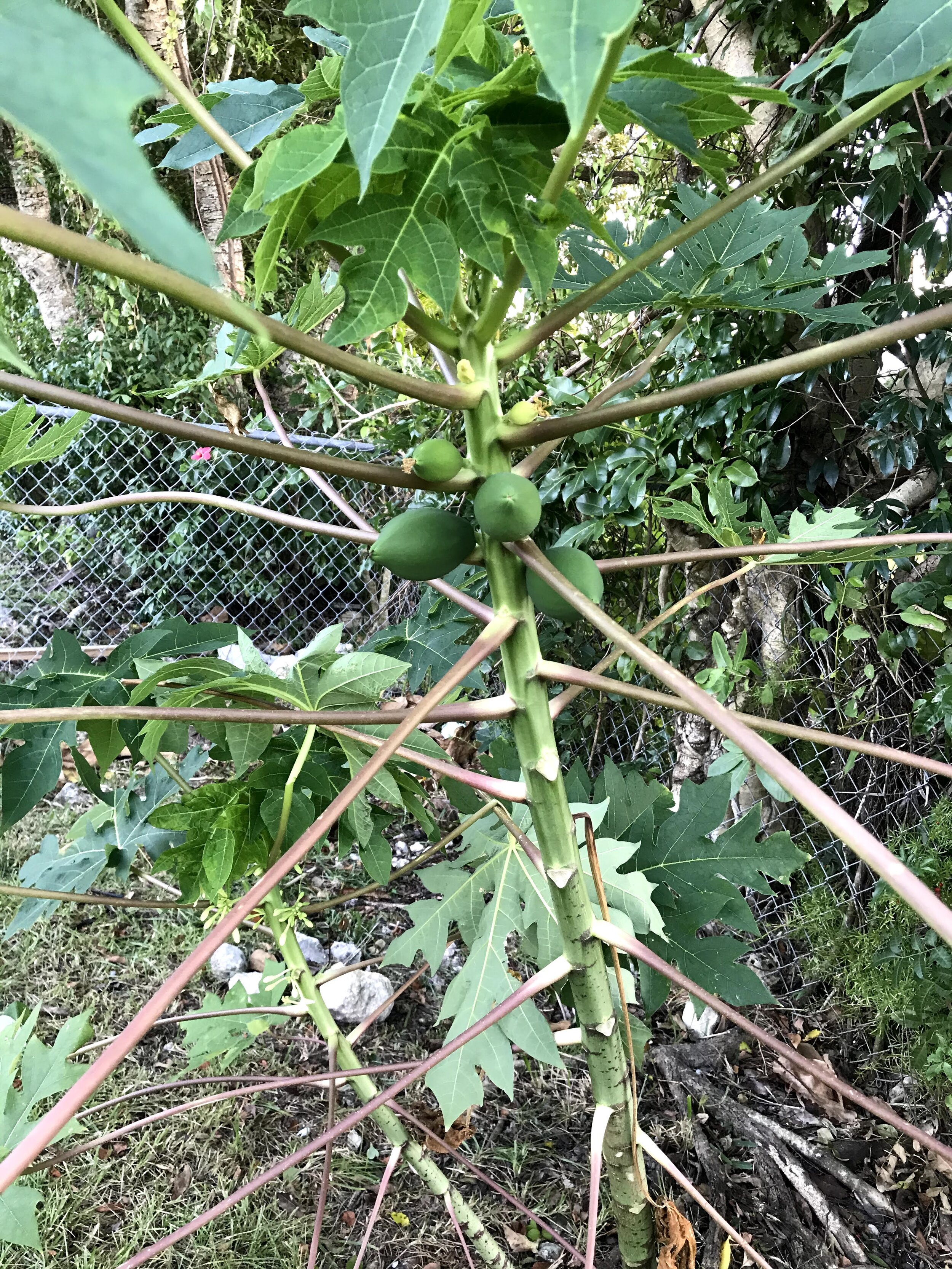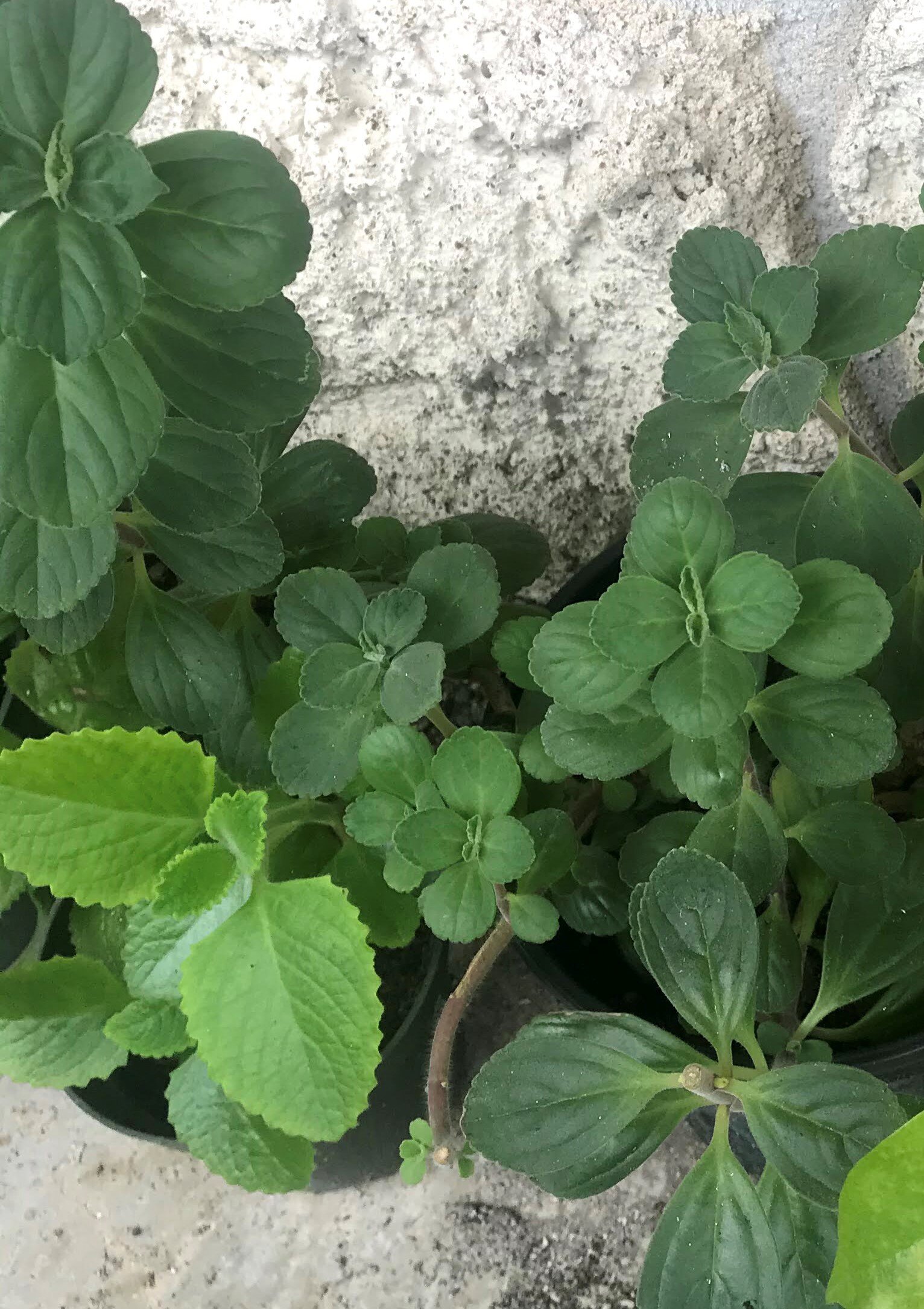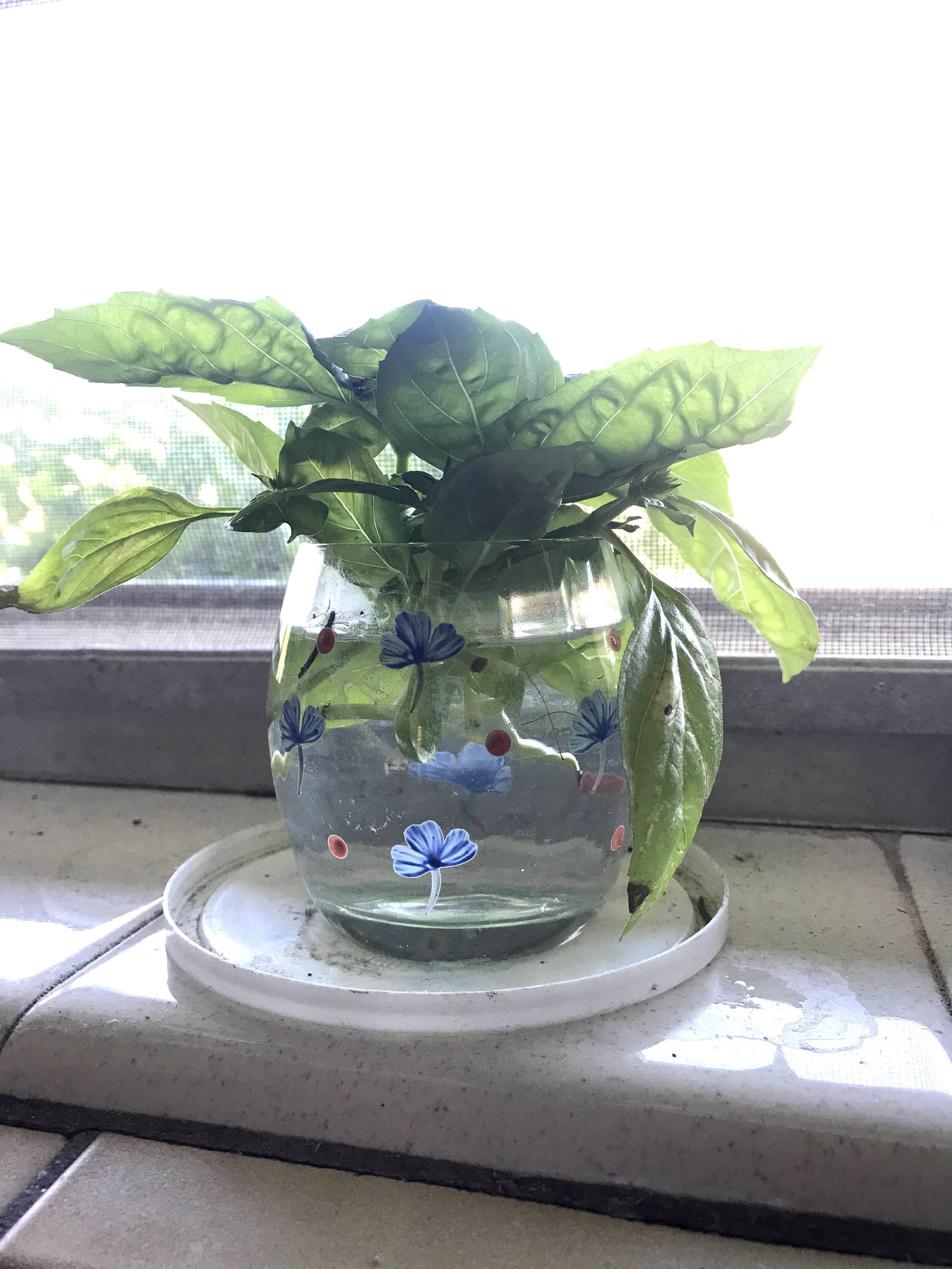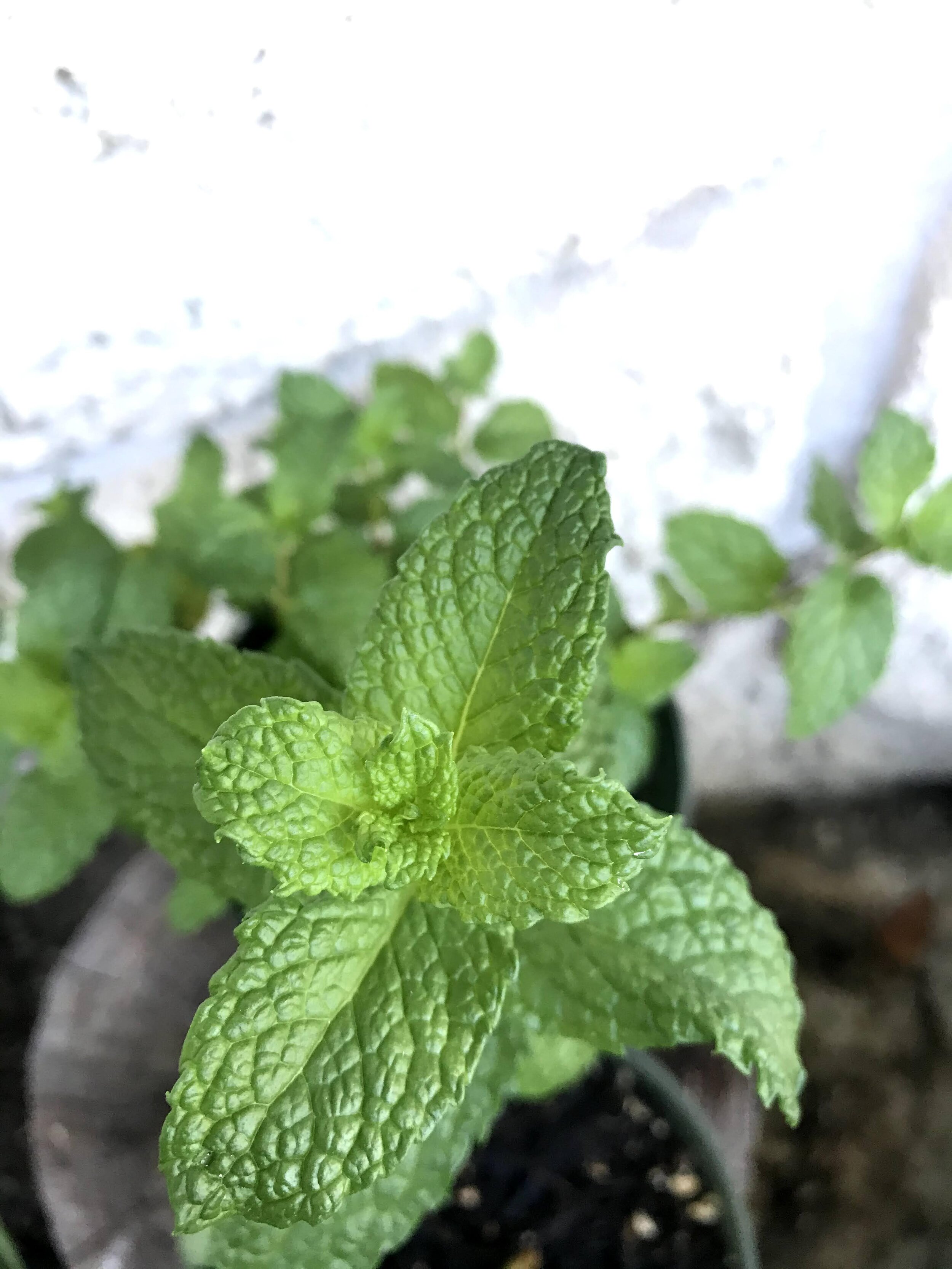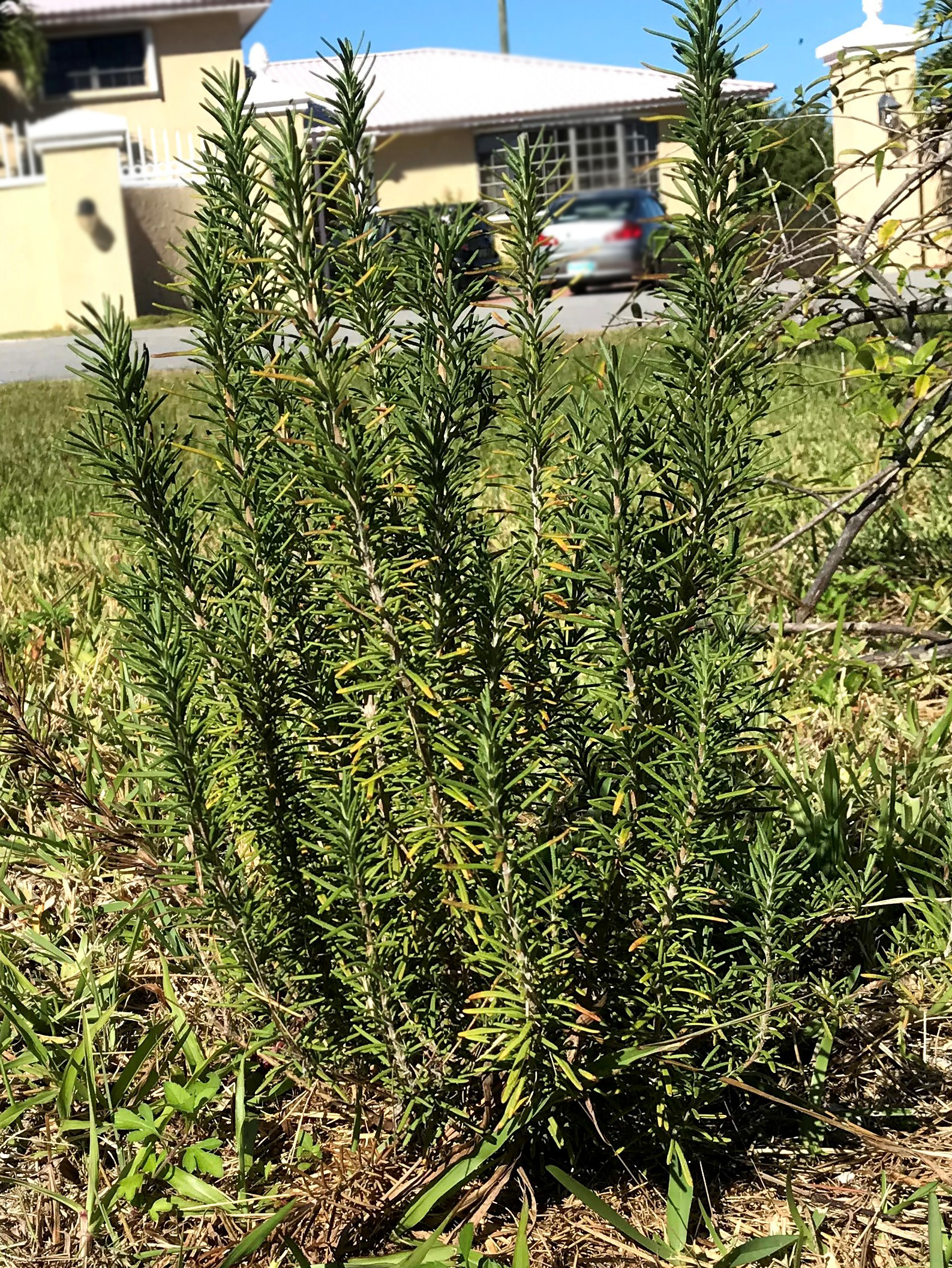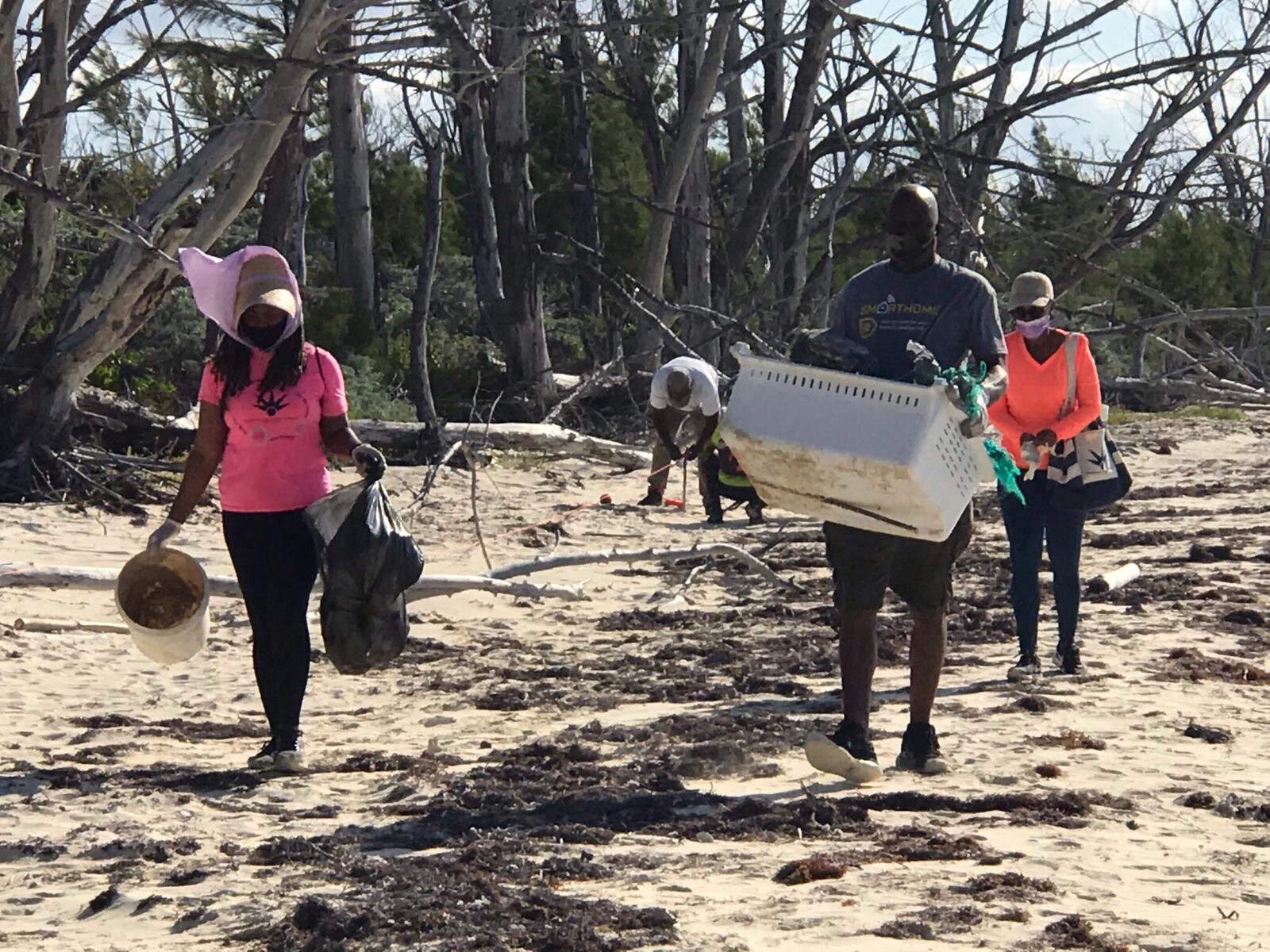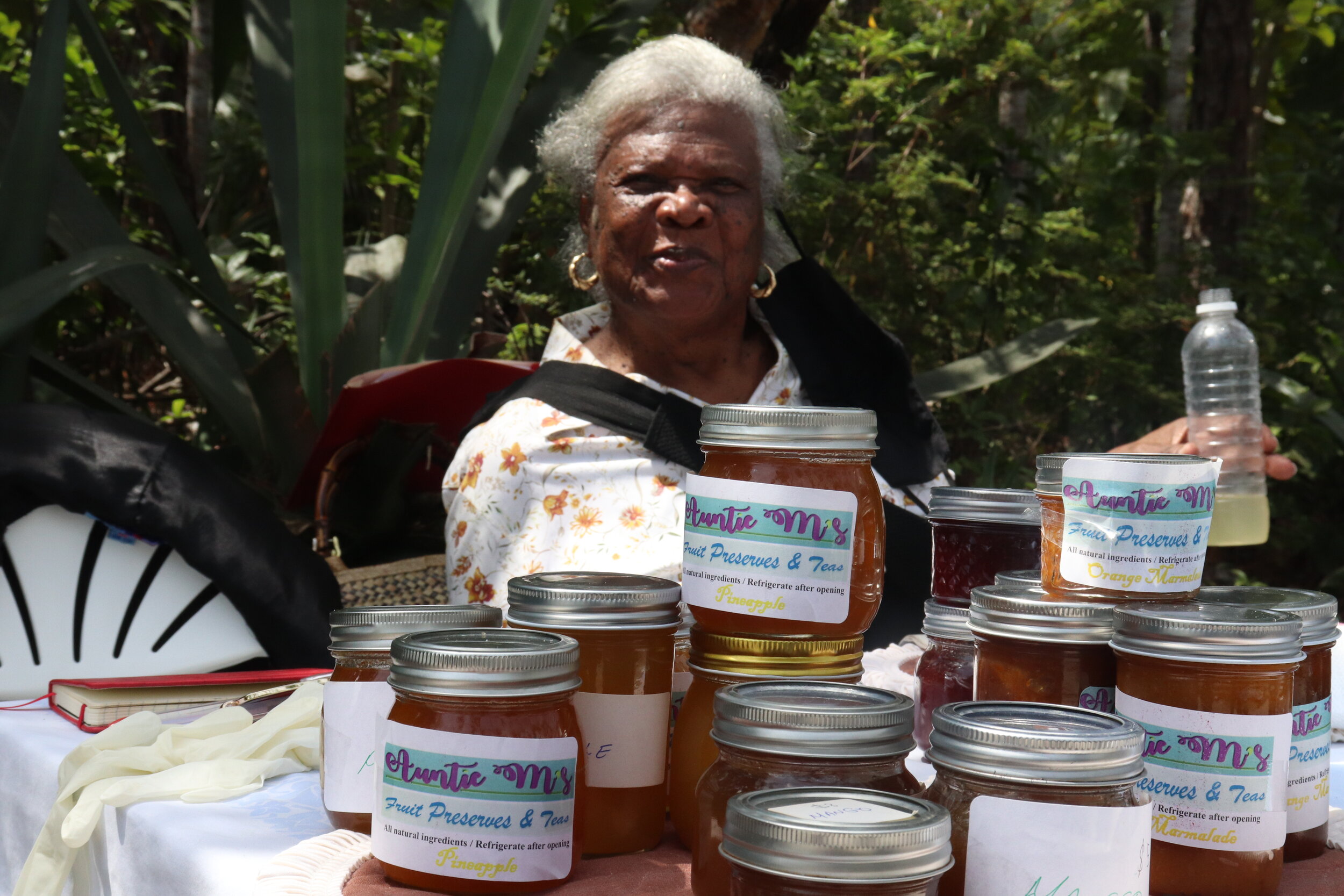12 Realistic ways to live more Sustainably
Sustainability tips for the average person
Use reusable bags
Reusable bags are a great alternative to single use plastic bags. These bags are usually free or very affordable (from $2 and up). Good quality reusable bags can carry lots of groceries and last for years when kept well.
The Keep Grand Bahama Clean committee gave these away for free at Da Market at Rand Nature Centre for Earth Day. You can also get bags from Rand Nature Centre for a donation of $2.00.
2. Start a compost
First things first, what is a compost? Why should you start one? How to start one?
Composting is the natural process of breaking down living things into very fertile soil. Starting a compost can help reduce the amount of food waste that ends up in our landfills and enrich the soils around you. If you eat food, you can start a compost. All you need is a bin, food scraps, some soil/dirt and dried leaves. Add the soil as your base, then add your dried leaves and then add your food scraps on top. Over time maggots and earthworms will begin to break down the food scraps into fertile soil.
This is just a simplified version of how to start a compost and how composting works. Check out some YouTube videos for more information.
This is my compost bin. As you can see, some plants have started to grow from the food scraps I dumped. I started this bin on August 8, 2020 and this picture was taken on March 17, 2021.
3. Plant a tree
As easy as one, two, tree. Trees create oxygen and if they’re big enough they give shade and can make an area cooler. Native trees are important to native animals that feed on them or need them for pollination. You can plant a in your own space or in a community space. All trees have value but fruit trees provide food, which increases their value. Planting more fruit trees can provide food for less fortunate individuals who may not have access to food. But if you can’t find a fruit tree, plant what you have. Be mindful of planting invasive trees like Brazilian pepper, casuarina pine, Scaevola, Umbrella trees, and more. Do your research if you’re not sure.
I planted this Moringa tree about 2 years ago from seed. Now its over 7 feet tall and producing its own seed pods! (Moringa is good for managing high blood pressure, among other things).
4. Grow your own food
This might seem intense, but it doesn’t have to be. Save seeds from your foods like peppers, cantaloupe, pumpkin etc. or save food scraps like onion buds, garlic buds, and celery buds and plant them. It can be so satisfying to watch a plant go from seed to plant/fruit. Fruit trees are valuable and help to combat food insecurity. Growing your own food helps the increase oxygen in the environment and help keep money in your bank account. It’s a win, win
5. Start a herb garden
Ok, growing fruits and may not be your thing. An easy way to begin on your gardening journey is to start an herb garden. Most herbs found in the grocery store can be propagated in water and will grow a whole new plant. Herbs like rosemary, basil, thyme, mint and green onion can be put in water and will grow roots. Before you know it, you’ll have your very own herb garden.
6. Collect rainwater
We’re on a budget, so we’re not going to build a cistern and a water collection system. We’re keeping it simple. Use a bucket or old bin and put it under your roof where water flows during a heavy rain. You can use this water to water your plants in your new garden. Plants love rainwater and they’ll flourish. But keep in mind, stagnant water can attract mosquitos and other pests. So, if you’re collecting rain water, make sure you keep it covered in between uses.
This was supposed to be a cool slow-motion video. But here’s a screen grab of how I collect rain water from my roof.
7. Get a reusable water bottle
We all have to stay hydrated, so why not do it sustainably. Single use plastic bottles create tons of litter, and this can be avoided. Recycling is not always an option and on small island countries like The Bahamas, it is never an option. Our best solution is elimination. Reusable water bottles are often given away in PR packages for free but if you want a more heavy duty bottle, they can range from $10 an up.
I don’t go many places without my water bottle. It helps me stay hydrated and I never need a single use plastic bottle.
8. Refill your bottles
In The Bahamas, we often purchase water and on islands like Grand Bahama and Abaco, there is no other suitable option at the moment. [Thanks Dorian]. When buying water, instead of purchasing a new bottle every time, reuse your bottles and have them refilled. Refilling bottles saves money and reduces litter. To refill a 1 gallon bottle can be a little as $0.75 and for a 5 gallon bottle $2.50.
We refill our 5 gallon bottles in this house!
9. Skip the plastic straw
Some may argue that straws aren’t even necessary. I haven’t found a better way to walk and drink from a cup as yet, so let’s keep them, but make it ~Sustainable~ *Tyra Banks voice*. Reusable straws are easy to find these days [if you’re in Grand Bahama and want to buy one, check our Instagram page for more info]. They come in all kinds of materials like stainless steel [same material as your average forks and knives etc.], bamboo, silicon and more.
My trusty metal straws. Check our Instagram to find out how you can purchase your own.
10. Carry your own cup
The Bahamas’ plastic ban did not include plastic cups for some reason. We can combat this by traveling with our own cups. Some businesses feel the need to mix your drink in a plastic cup first and then pour it into your personal cup, which is extremely annoying and defeats the purpose. However, if we all start bringing our own cups, maybe they’ll be forced to learn how to measure drinks without a plastic cup.
These are a few of the cups I’ve collected over the years. One was a gift and the others were complimentary from events I went to. (Peep the reusable straws!)
11. Clean up an area
Environmental clubs and service clubs are often participating in beach clean ups and they always need help. You can follow your local Environmental organizations and Service clubs to keep up to date on when they are planning their next beach clean up. You can also plan your own beach/community clean up. Beaches are not the only places that need help. Litter finds its way into forests and, road sides and even in canals. Take a stroll through your neighborhood and clean what you can, you may inspire your neighbors to do the same.
12. Support Local
Supporting local can get expensive, I know. But take time to visit local farmers markets, where farmers are selling locally grown produce and plants. Artisans are selling their products like locally made honey, beeswax, skincare, hair care and so much more. Its a nice event to take the family to and it helps the local economy. Buying local reduces carbon emissions and we should aim to support our fellow Bahamians. The Rand Nature Centre on Grand Bahama has a monthly farmer’s market called ‘Da Market’ on the last Saturday of every month. Follow them on Instagram here and here for more information.
One of the vendors from Da Market at Rand Nature Centre posing with her products.
